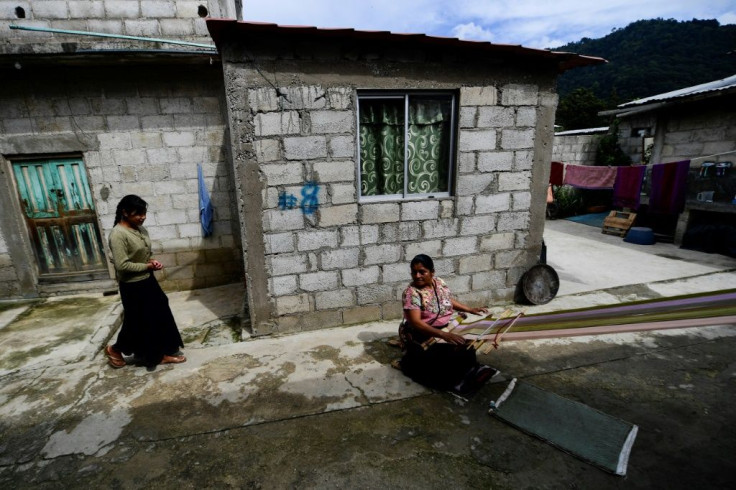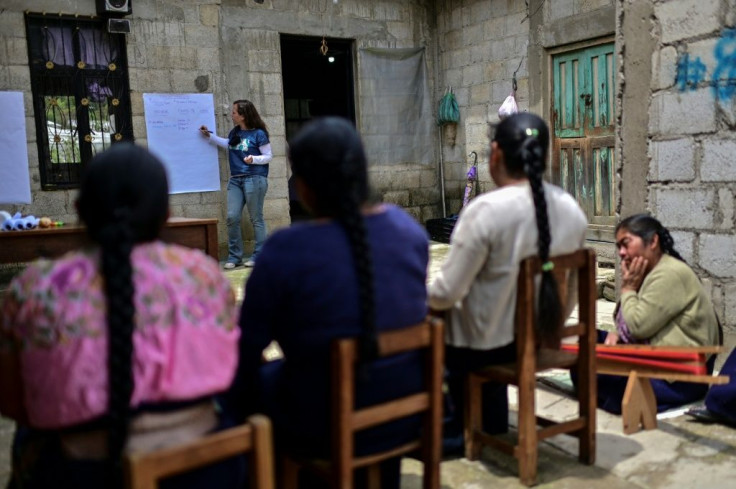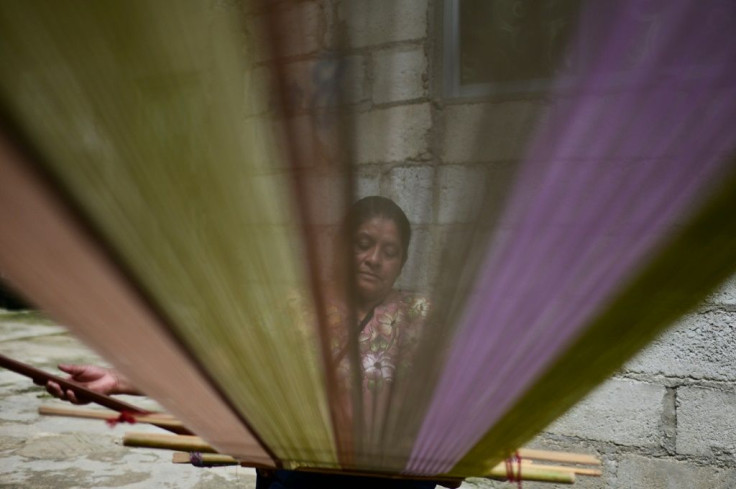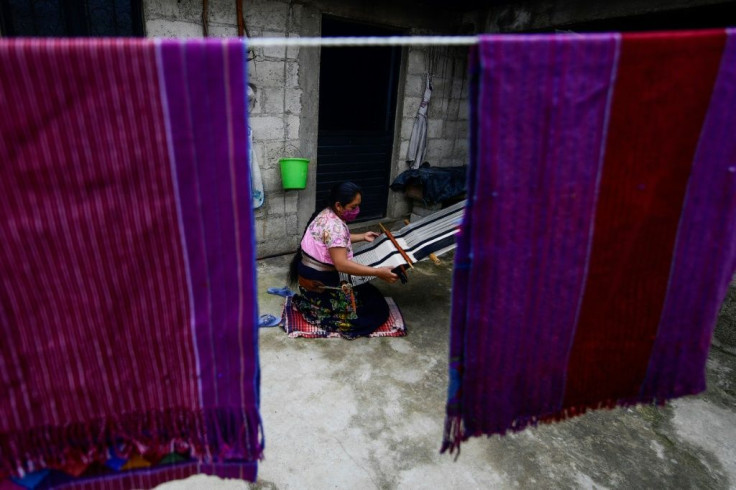Mexico's Indigenous Weavers Seek International Recognition
Indigenous weavers in Mexico's southern highlands are striving for rightful recognition from an international fashion industry that they say plunders their creations and tradition.
The struggle has taken on added symbolism as Mexico this month celebrates the bicentenary of its independence with plaudits for indigenous peoples' resistance against Spanish colonization.
Sitting on blankets on the ground in the courtyard of Julia Perez's house in the town of Zinacantan, weavers use traditional looms to produce fabric blending a multitude of bright colors.

"There is a fusion of our ideas so that our tradition, our culture, our fabrics are not lost," the 39-year-old Tzotzil craftswoman said.
"That's why we always use it in our designs," she said of the inspiration for the colors and patterns.
The weavers' enthusiasm belies the laborious and complex nature of their work, which requires great dexterity, Perez said.

The value of their time and creativity is something they have come to appreciate after meeting Dulce Martinez de la Rosa and Daniela Gremion, the women behind the Fabrica Social (Social Factory) project devoted to traditional Mexican art.
Gremion met Perez more than 10 years ago, recognized the quality of her work and asked her to collaborate.
Since then they have followed a path of mutual learning, trust and friendship.

Under the Fabrica Social brand, the women of Zinacantan and other artisans in six Mexican states seek to improve working conditions and oppose business inequalities, through training that is more educational than commercial.
The weavers set up chairs and a table in the yard and Gremion begins to review the basics of costs, expenses and other aspects to reach a crucial but complex goal: fair trade.

The artisans listen with enthusiasm and discuss their time and needs and the correct way to put a price on them.
"It's a tool that helps us a lot to arrive at a price for a product that is often almost invaluable," Gremion, 40, said after completing the workshop.
Beyond the financial value, indigenous textiles represent a cultural and historical heritage systematically used without permission by international fashion brands.
The Mexican government has demanded explanations from designers such as Venezuela's Carolina Herrera and France's Isabel Marant, as well as brands like Zara, Rapsodia and Anthropologie, for cultural misappropriation" of indigenous culture.
"It's not fair that they do this to us as indigenous people," said Perez.
Major brands' exploitation of indigenous heritage shows the asymmetry of power between transnational companies and local creators, a legacy of old "colonial regimes," De la Rosa said.
"The artisans of this country and their work, their techniques and their processes should be as well-known as Carolina Herrera, Isabel Marant, Zara or Mango -- that's the real struggle," the 42-year-old said in her workshop in Mexico City.
"We live in an economic system that is still absolutely colonial," she added.
Fabrica Social is one of several projects invited by the Mexican culture ministry to join the "Original" platform, which seeks to draw on their experiences to promote "ethical collaborations" between large companies and artisans.
The weavers of Zinacantan hope it will bring more respect from international brands for their talent and identity.
"We would like them to recognize our work because it is done well," said Julia's cousin Sara Perez, who has been part of the project from the start.
"It's made with all our heart and we're also working with materials made in Mexico," she said.
© Copyright AFP {{Year}}. All rights reserved.




















